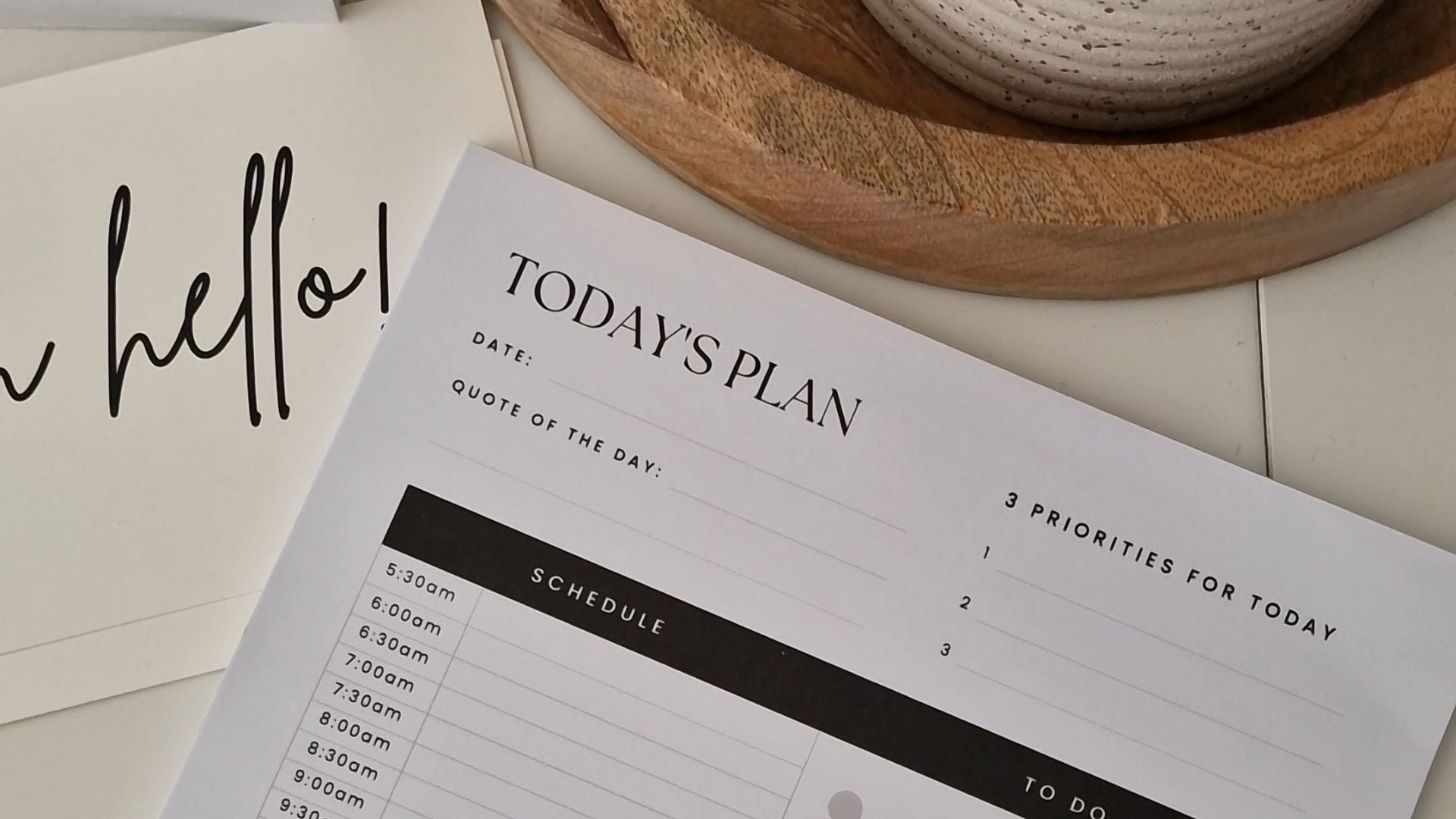
5 reasons why planning boosts happiness and productivity
Productivity and happiness are often tied together in a mutually reinforcing relationship. When we feel happy, we are often more motivated and engaged in our work, leading to increased productivity. Conversely, when we are productive and feel a sense of accomplishment, this can boost our happiness and overall well-being.
Research has shown that happiness and positive emotions can improve performance by increasing creativity, reducing stress, and improving cognitive function. Happy individuals tend to have better relationships (with family, friends and colleagues), leading to a more positive environment in our personal and work lives, as well as increased collaboration.
On the other hand, increased productivity can lead to a sense of accomplishment and progress, which can boost happiness and self-esteem. When we’re able to successfully complete tasks and meet our goals, we feel a sense of fulfilment and satisfaction, leading to a positive spiral of increased productivity and happiness.
In short, productivity and happiness are intertwined and can have a positive impact on each other. By focusing on both, we can create an environment that promotes our well-being and success.
So where does planning come into this? There’s lots of research to show links between planning, productivity and happiness. Let’s look at five reasons why planning boosts happiness and productivity.
1. Planning helps us to stay organized and focused on our goals.
When we know what our goals are and how we can achieve them, it makes it easier to make decisions and take action. This can help us to be more productive and efficient with our time.
2. Planning helps us to manage stress.
When we plan our day, tasks, and projects, it can help us to break them down into smaller, more manageable chunks. This can help us to feel more in control and less overwhelmed.
3. Planning can help us to stay on track with our goals.
When we plan and keep track of our progress, it can help us to stay motivated and inspired to keep going.
4. Planning can also help us to identify areas where there might be gaps.
By taking the time to plan, we can identify areas where we need to improve or where we need to make changes. This can help us to stay focused and make progress towards our goals.
5. Planning can boost our happiness.
When we have a sense of direction and purpose, it can help us to feel more satisfied with our lives. Planning can help us to see the bigger picture and appreciate the progress that we are making.
But sometimes, planning and organising can feel stressful and there could be a few reasons why:
- Overwhelm: For some people, the process of planning and organizing can feel overwhelming, especially if they have a lot of tasks and responsibilities to manage.
- Perfectionism: Some individuals may feel stress or anxiety when they feel like they need to have everything perfectly organized and planned. The fear of making a mistake or not getting everything right can lead to stress and anxiety.
- Inflexibility: For some people, having a plan in place can create a sense of rigidity and inflexibility. They may feel like they need to stick to the plan, even if circumstances change or new information becomes available. This can lead to stress and frustration.
- Resistance to change: Some individuals may have a hard time adjusting to new routines or systems, especially if they are used to working in a different way. This resistance to change can lead to stress and anxiety.
- Time constraints: For some people, the process of planning and organizing can feel time-consuming, leading to stress and frustration. They may feel like they don't have enough time to get everything done or worry about falling behind.
By being mindful of these challenges and taking steps to address them, we can reduce the stress and make the planning process more manageable (and fun!).
So now that we understand the benefits of planning how can we get started? Here are some tips to help you get started with planning and organising:
1. Identify your goals
Start by identifying the things that are important to you and what you want to achieve. Write down your long-term and short-term goals to keep them in mind
2. Make a to-do list
Write down all of your tasks and responsibilities, both personal and professional. Prioritize these tasks based on their level of importance and urgency.
3. Schedule your time:
Use a calendar or planner to schedule time for each task. Allocate enough time for each task and make sure to leave some buffer time for unexpected events or changes.
4. Review and adjust your plan
Regularly review and adjust your plan to make sure you are staying on track and making progress towards your goals.
5. Be flexible
Be open to making changes to your plan as needed. Sometimes things come up that require you to adjust your priorities or schedule. Be flexible and adaptable to make sure you are making the most of your time and resources.
By following these steps, you can get started with planning and organizing your to-do list, leading to increased productivity and happiness. Need some further help to get started? Take a look at these planning pads.



